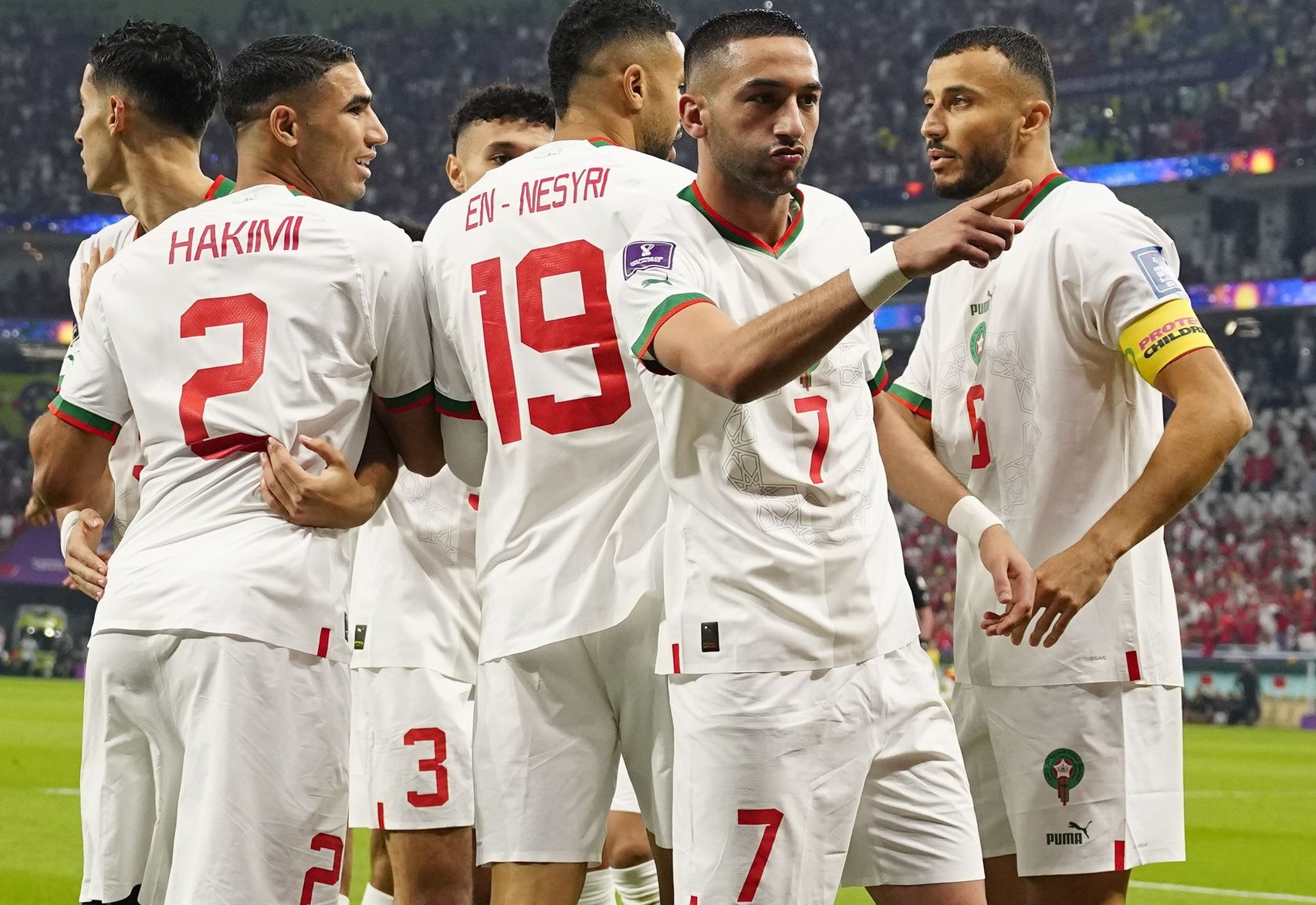Only 14 kilometers of water separate Spain from Morocco, but the geographical proximity to the southern neighbor does not translate into a deep knowledge of its football, eager to surpass in the World Cup in Qatar the border of the knockout stages of Mexico 86, its best result so far. The two teams arrive in different emotional moments: Morocco finished at the top of a group in which Belgium and Croatia started as favorites. And Spain brushed elimination by losing to Japan, disappointing the expectations unleashed by its brilliant start against Costa Rica.
Does that make the North African team favorites? “It is still Spain, although seeing what happened on the last day, ugh!”, snorts doubtfully on the phone the Cartagena Juan Pedro Benali, one of the Spaniards who knows Moroccan football best. He has coached five teams in the top flight, with which he has been a semifinalist of the Throne Cup, finalist of the Arab Cup, and third in the league. “I went there for the first time in 1999, and football has changed a lot since then. People live it more, it’s a little more professional, with more organized teams and the federation has invested a lot,” he explains.
The Santander Angel Viadero, another Spanish technician who threw himself into the Moroccan adventure, has the same perception. “Their football is changing by leaps and bounds, as the country does, but it is still very virgin. They are street players. I remember passing through towns and cities traveling and seeing children playing on the roads day and night. That street game that maybe we have lost in Spain.”
The data speak of a Moroccan combination open to the world. The vast majority have been trained in Europe. And 14 of them were even born outside their country, mainly in the Netherlands and Belgium, but also in Spain, as in the cases of Achraf Hakimi (Madrid) and Munir Mohamedi (Melilla). It is the consequence of being a country of emigrants that has been exporting labor for decades, as has also been felt in the stadiums of Qatar because a large Moroccan community lives there.
The performance of the Atlas Lions has not surprised Benali, who saw live his last two friendlies before the World Cup (a draw against Paraguay and a victory against Chile). “I think it’s the best generation of Moroccan football, there are many players in very important leagues,” he argues. He knows well the coach, Walid Regragui, whom he faced in the past. Him, he emphasizes that “defensively he is very good, and then up he leaves freedom”. On the star, he has no doubts, the Chelsea attacker Hakim Ziyech, author of the 1-0 against Canada. But he also sees shortcomings and weaknesses that Spain can exploit. “At the back, they are slow, especially the captain, Romain Saiss, and then the wingers Achraf and Mazraoui usually go up and leave spaces at their back.” Imagine the match like this: “Morocco will wait behind with a 4-1-4-1 and En Nesyri trying to press the ball out. If Spain tries to go inside, it will suffer. He has to try to open up to the bands.”
The Cantabrian Viadero, who managed Atletico Tetuán in 2019, praises his solidity. “Morocco is not going to disarm. He will wait for the moment to bite the bone. Spain is the favorite, although it is less expert than on other occasions. The key is whether he has learned from what happened against Japan because the script can be similar.”
Carlos Alós from Tarragona is a football globetrotter. Currently, he manages the Rwandan national team but has trained in Hong Kong, Poland, Cyprus, Qatar, and Kazakhstan. A good season in the latter country caught the attention of FAR Rabat. And there he left in 2019. He was a neighbor of Regragui, with whom he had dealings. “He’s a very strict coach. Their teams always have a lot of orders. He does not have as much quality as the Spaniards, but they supply it with tactical and physical discipline. They’re going to come out very quickly to the cons and the open space.”
He highlights two qualities: the ability to punish the opponent’s losses and his defensive seriousness when he goes ahead – he has only conceded one goal. “When there are losses, Morocco’s transitions are going to be very fast, and they can do us a lot of damage. In positional attack, they are not going to create many problems for us, but if they score first it will be very difficult to open their defense, “he predicts.
“They leave their souls”.
The good Moroccan performance has not surprised Real Valladolid either, where Jawal El-Yamiq plays, a central defender who has had minutes from the bench in two of the World Cup clashes, but also veteran defender Zou Feddal and midfielder Anuar Tuhami. The latter was on Regragui’s previous list until he suffered an injury that left him out. “For a lot of people it’s surprising, but I knew they would be tough. They have very high-level players, some had gone unnoticed,” he explains.
Anuar praises their withdrawal and the way they defend. “They give their all when they lose a ball,” he said. The Pucelle youth academy player believes that this forcefulness in the center can make it difficult for Spanish combinations between lines, and if they steal quickly they can do damage at the back with Ziyech, Achraf, or En-Nesiry. On the other hand, Luis Enrique’s team has the advantage of possession. “If they move the ball from side to side, it will be a long game for them and they can get desperate. Morocco will try to make the game dirty and come out on the counter,” predicts Anuar, who appreciates the unity of the group around the coach after the anxiety of the past: “There is a lot of national feeling and a lot of desire.
